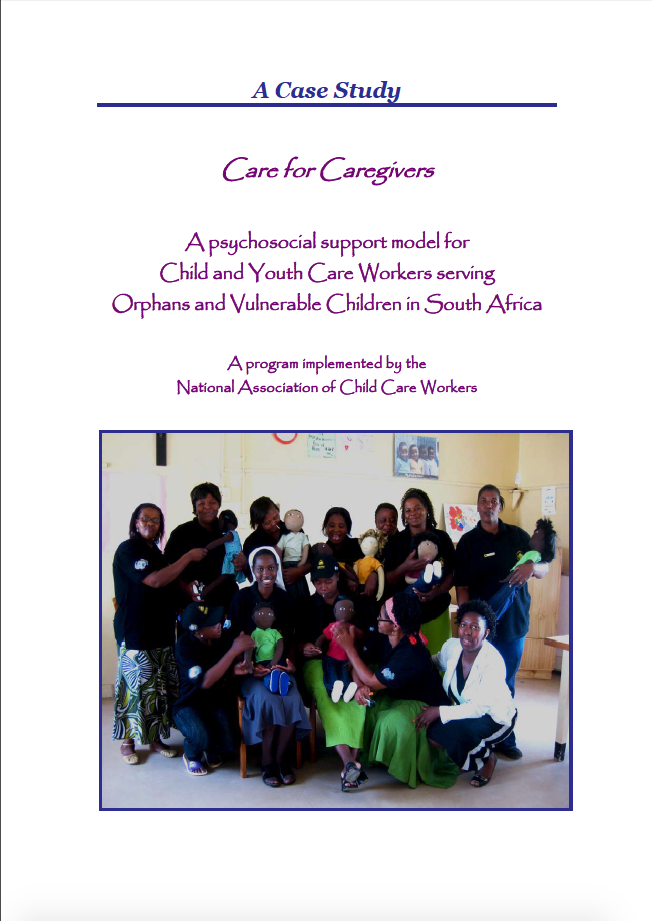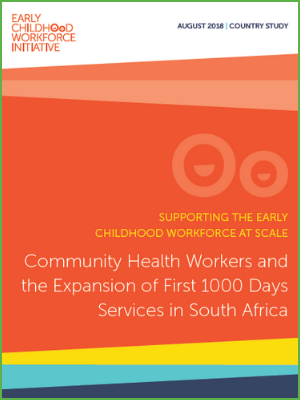Care for Caregivers: A psychosocial support model for Child and Youth Care Workers serving Orphans and Vulnerable Children in South Africa

This case study is part of a larger effort to document and increase understanding of the various approaches for supporting children affected by HIV and AIDS in South Africa and around the world. The role of the child and youth care workers (CYCWs) who provide programs to those children and their families is of significant importance. Although they report high levels of job satisfaction they role is very demanding. Believing that offering enhanced psychosocial support to CYCWs would prove critical to the program’s success, in 2007 The National Association of Child Care Workers (NACCW) facilitated the development of an innovative model called Care for Caregivers (C4C). The model brings clinical psychologists directly to CYCWs for a six month program of professional psychosocial support through individual and group counseling.
This case study offers a detailed examination of the C4C model. The report provides an overview of the strengths of the C4C program, recommendations for the future implementation and extension of the program, as well as specific priorities.


